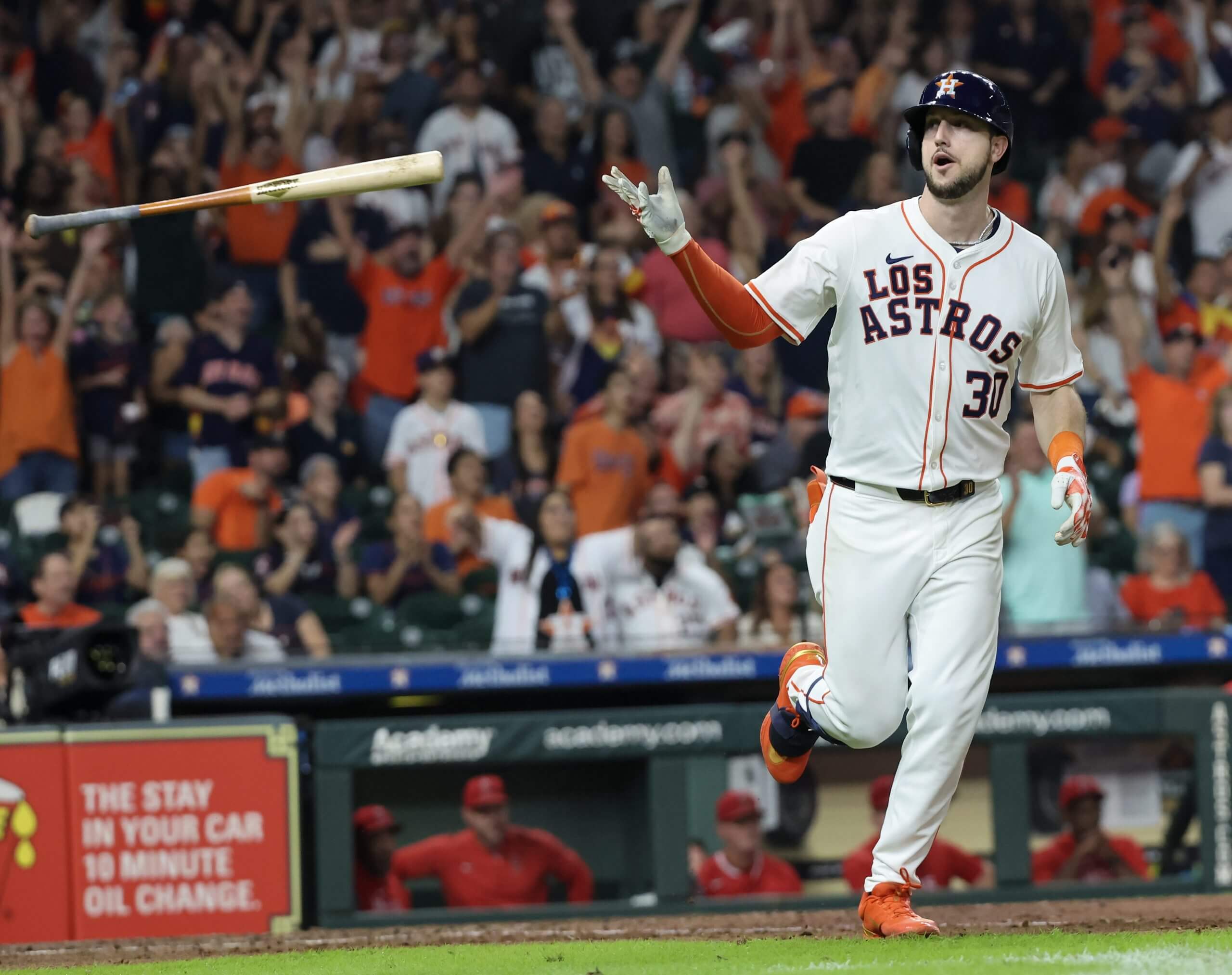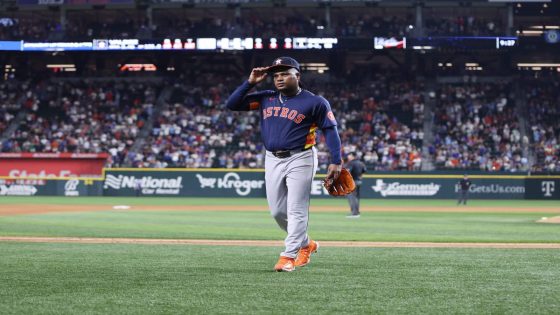DALLAS — Clarity may have arrived for the Houston Astros, a franchise that arrived at the Hilton Anatole in search of a direction and departed holding some of the offseason’s most sought-after prizes. Club officials had a plethora of permutations for how this winter would unfold, but had not committed to anything before gathering this week at the Winter Meetings.
Then, on Monday evening, general manager Dana Brown acknowledged the Astros are “willing to listen on anybody.” A frenzied 48-hour stretch of trade inquiries for outfielder Kyle Tucker, starter Framber Valdez and setup man Ryan Pressly ensued, enacting a plan unlike any executed during Houston’s decade of dominance.
Momentum is growing so quickly around Tucker that trading him is beginning to feel more realistic than at any point this offseason. The New York Yankees and Chicago Cubs are the most aggressive suitors. Few even fathomed such a possibility when the winter began, though Brown and some of his lieutenants had privately discussed exploring it.
Both of Brown’s predecessors followed that same logic — considering everything and eliminating nothing — but never seriously entertained moving any of the club’s impending free agents. A compensatory draft pick sufficed for compensation, even for players Houston knew it had no realistic shot of retaining. Last December, at these same Winter Meetings, Brown emphatically denied the Astros would trade Alex Bregman.
So what has changed? A bloated payroll is part of the shift in philosophy. Pressly, Valdez and Tucker will all make at least $14 million next season — their final one under team control. Approximations have the Astros around $12 million below the first luxury tax threshold. It is unclear if owner Jim Crane will permit the club to cross it for a second consecutive year.
More glaring is the accentuation of industry-wide concerns about Houston’s championship sustainability. Crane has claimed the window will never close under his ownership tenure. Just the thought of moving Tucker runs counter to Crane’s declaration, but the owner has given the club his blessing to proceed, according to people familiar with his thinking.
Crane hired Brown, in part, for his extensive experience in player evaluation. The general manager has now had two full seasons to survey the state of Houston’s farm system, one that has been described by a rival scout as “extremely thin (with) not a ton of quality depth and zero top-end talent.” Dangling Tucker and Valdez in trade talks all but affirms that claim.

“I think we do have some players that are getting close that we might be able to use,” Brown said on Monday, speaking generally about his farm system. “I don’t think they’re ready to step in within the first 60 days of the big-league season, but maybe sometime after that, after some seasoning in the minor leagues.”
Crane just carried the largest payroll in club history and paid the luxury tax for the first time in his ownership tenure. To suggest he doesn’t spend money is ludicrous, but Crane has never splurged in a way that would allow his franchise to function without a fertile farm system.
Replenishing it is mandatory, especially after trades for Justin Verlander and Yusei Kikuchi at consecutive deadlines further dwindled the prospects. Brown is lauded for his drafting acumen, but now boasts two assets that could fetch the sort of seismic, instant help that drafts can’t produce — especially for a team that will continue to pick near the bottom.
Allowing Brown to survey a list of prospects from potential suitors and use his player evaluation expertise — the thing in baseball he’s best at — seems logical. He and his baseball operations lieutenants must believe this is Houston’s ideal chance to balance the present and future.
An entrenched core of Jose Altuve, Yordan Alvarez, Yainer Diaz, Hunter Brown, Bryan Abreu and Josh Hader offers hope they are right. So does playing within a very manageable American League West, a division Brown still believes the team can win without one of Tucker or Valdez.
“I think the team is good enough to,” Brown said. “It depends on what you get back in the return if you decide to go that way, but we will not make any trades that don’t make sense in terms of winning the division, getting back to the postseason and all that. We’re not trying to break the team down. The trade would have to make sense in that we’re not weakening our club.”
Playing without Tucker would weaken the 2025 Astros, a team that Crane, Brown and manager Joe Espada all still expect to contend. That Houston is asking for major-league-ready players in any return package is proof of it.
Isaac Paredes, Seiya Suzuki and Luis Gil are among the names Houston has asked for during talks with Tucker, multiple people familiar with the negotiations said, but younger prospects would also be included. Infielder Cam Smith, the Cubs’ first-round pick last season, is a name that intrigues Astros officials.
Parting with either Tucker or Valdez would represent a seminal moment of Brown’s tenure. Trading either man may be the sort of franchise-altering decision that some are uncomfortable executing.
Brown already demonstrated he’s unafraid to be bold when he paid handsomely for two months of Kikuchi during last season’s trade deadline. Moving Tucker or Valdez would have far greater implications both now and in the future, but it’s a risk he seems willing to take.
Tucker and Valdez are dominating discussion for obvious reasons, but Pressly still profiles the most expendable player among the Astros’ available trio. He will also be the most difficult to trade.
Pressly’s $14 million salary is steep, especially for a 35-year-old reliever coming off an inconsistent season. Unsurprisingly, teams calling the Astros have asked the club to eat some of the money, which could run counter to Houston’s mission of freeing payroll space.
Pressly’s full no-trade clause will give him autonomy to direct the discussions. His wife, Kat, is from Houston and it’s where both of his children were born. It may take a perfect situation — and some assurance Pressly will be a closer — to sacrifice that family comfort.
Before being usurped by Josh Hader last season, Pressly had been Houston’s primary closer since 2020, a stretch in which he had a 1.02 WHIP while allowing three earned runs across 34 1/3 postseason innings. Last season, Pressly posted a 3.49 ERA, 3.10 FIP and 1.34 WHIP.
“It was tough for him to adjust, for all of us to adjust,” Espada said. “I’m used to Pressly coming in in the ninth and (shutting) the door, so it took some time for him to adjust. I think once he did, I think he got it going and I think he threw some big innings for us. I think he did a really good job.
(Top photo of Framber Valdez: Tim Heitman / Getty Images)





